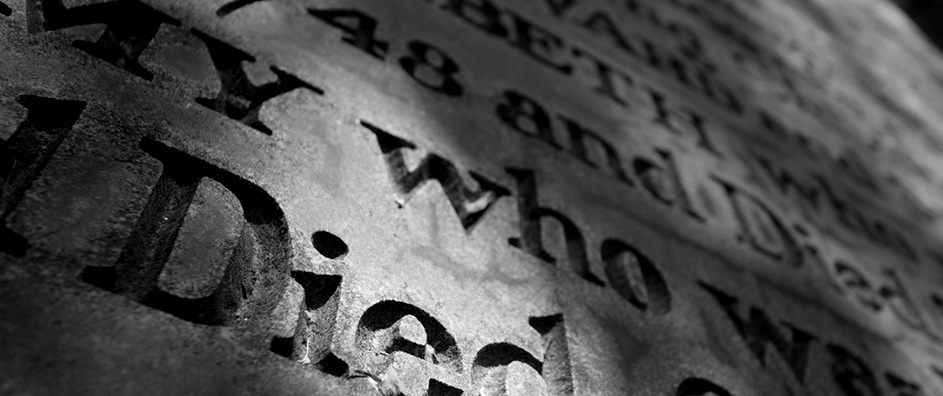What will your obituary say about your spirit? This question is not merely an existential curiosity; it serves as a profound challenge to assess how one’s life is lived and the legacy that is inadvertently woven into the fabric of existence. In the Bahá’í teachings, the essence of a person transcends the physicality of life; it dwells in the spirit and character cultivated throughout one’s journey. This contemplation invites individuals to reflect deeply on their contributions to the world, the impact they have on others, and the spiritual growth they achieve.
The Bahá’í Faith emphasizes that the purpose of life is to cultivate virtues and to develop a personal relationship with the Creator. Thus, interpreting one’s obituary can become a tool for self-assessment, prompting inquiries about whether an individual has fulfilled their potential in contributing positively to society. The Bahá’í teachings call upon followers to manifest qualities such as love, unity, integrity, and service, all of which intertwine to form a narrative that will resonate through one’s obituary.
In acknowledging the importance of spiritual reflection, one could creatively pose a challenge: What if we were to live our lives as though our obituary were written in real-time? How would this shift our priorities? Would it foster more intentionality in our daily interactions and decisions? This challenge cultivates an awareness of the transient nature of life and encourages individuals to embody their highest selves consistently.
To explore this concept further, it is crucial to contemplate the role that virtues play in shaping one’s legacy. The Bahá’í writings emphasize the importance of moral development. Integrity, as a fundamental tenet, underlies the principles of honesty and trustworthiness. Consider how one’s ethical actions and adherence to honesty not only affect immediate relationships but also contribute to a broader societal framework. An obituary that highlights a life led by integrity reflects a spirit that prioritized truth and accountability, aiming to inspire generational change.
Moreover, love—considered the central teaching of Bahá’u’lláh, the founder of the Bahá’í Faith—serves as an anchor in the manifestation of a vibrant spirit. A narrative steeped in love signifies a life characterized by compassion and connection. But love is not merely a passive emotion; it is an active force urging individuals to serve humanity. The profound question arises: Have we directed our love outwardly in ways that foster community and uplift those around us? An obituary reflecting a spirit imbued with love will likely speak of myriad acts of kindness and an unwavering commitment to the betterment of humanity.
Unity emerges as another vital principle that should come to the forefront when contemplating the legacy we wish to leave behind. In a world rife with division, the Bahá’í teachings challenge followers to advocate for harmony and oneness among individuals. An understanding of unity cultivates an ability to appreciate diversity, forging connections across cultural and social divides. When one’s life story encapsulates the essence of unity, it portrays an individual who transcended barriers, fostering cooperation and understanding with others. This becomes an aspect of the obituary that reverberates with relevance, as it captures the spirit’s commitment to building a cohesive and inclusive society.
Furthermore, the idea of service, intertwined with the aforementioned virtues, occupies a prominent place in both the Bahá’í teachings and the contemplation of an individual’s obituary. Selfless service to others not only enhances the quality of one’s life but also enriches the lives of countless others. By dedicating time, effort, and resources to the upliftment of marginalized communities or contributing positively to societal welfare, an individual can craft a legacy that is both inspirational and transformative. Would an obituary adorned with tales of service reflect a spirit devoted to addressing systemic issues and furthering social justice? It most certainly would.
As we delve deeper, it becomes evident that focusing on our obituaries forces us to confront our motivations and actions. What motivates us? Are we living authentically? The Bahá’í Faith implores individuals to pursue truth and to engage in collective action. This call for authenticity encourages introspection, vital for ensuring that one’s life narrative genuinely aligns with personal and spiritual ideals. A disconnect between lived experiences and desired virtues will undoubtedly reflect poorly in the final summation of one’s life. This realization nudges us toward a more intentional existence.
In summation, reflecting on the potential content of one’s obituary fosters a profound introspection on the myriad factors that contribute to the essence of our spirits. The Bahá’í teachings provide a robust framework for assessing the virtues that govern our actions. Integrity, love, unity, and service emerge as guiding principles, instrumental in shaping not only personal narratives but also collective consciousness. By positing the question, “What will your obituary say about your spirit?” we invite ourselves to embrace a life of purpose and intention, ensuring that the legacy we leave behind resonates with the highest ideals of humanity.
